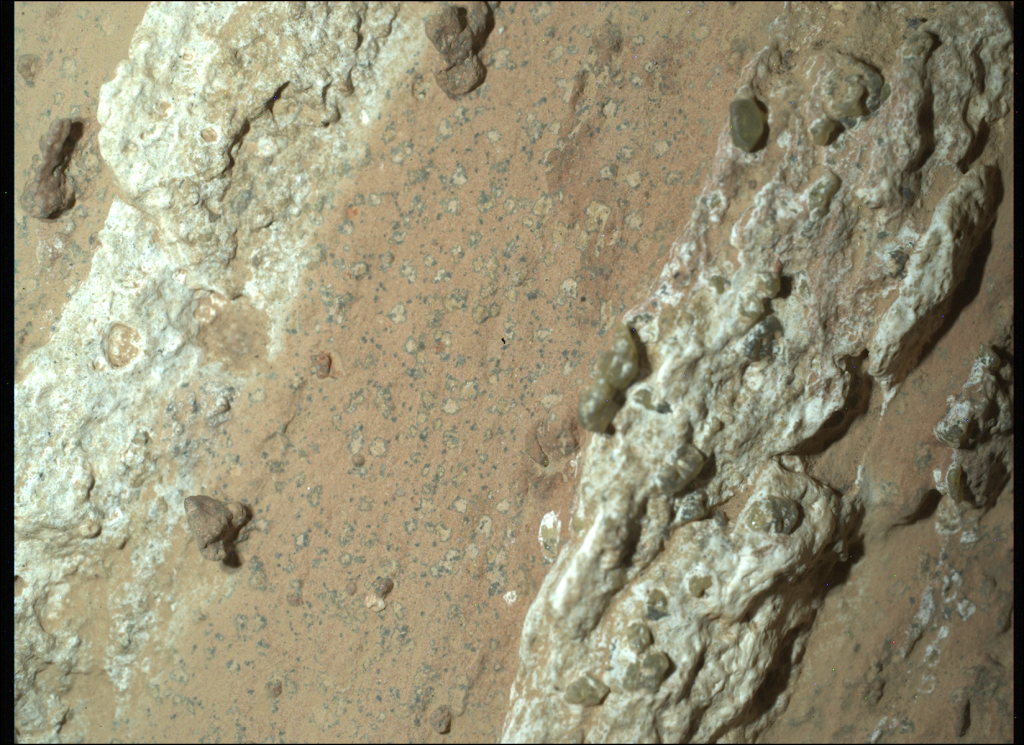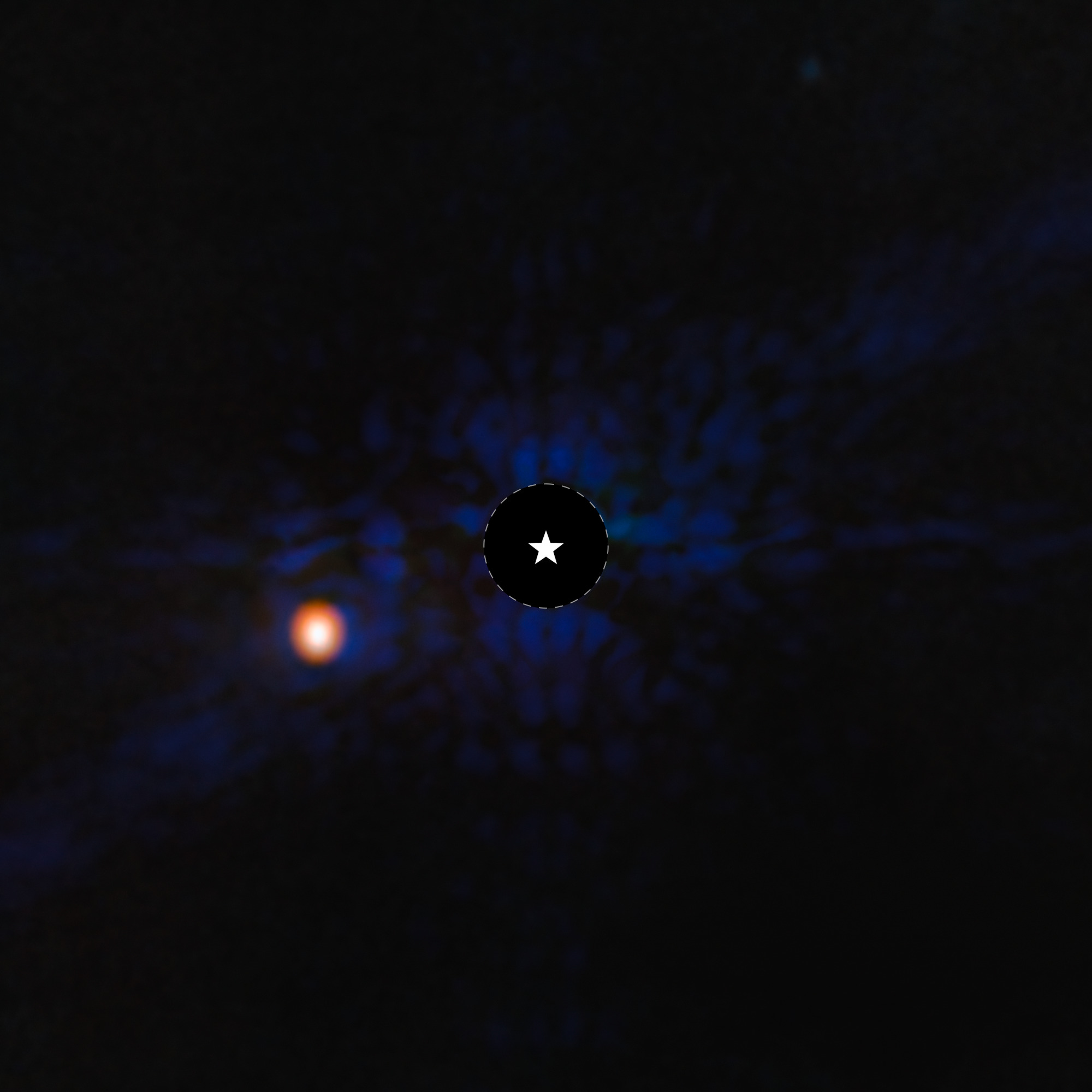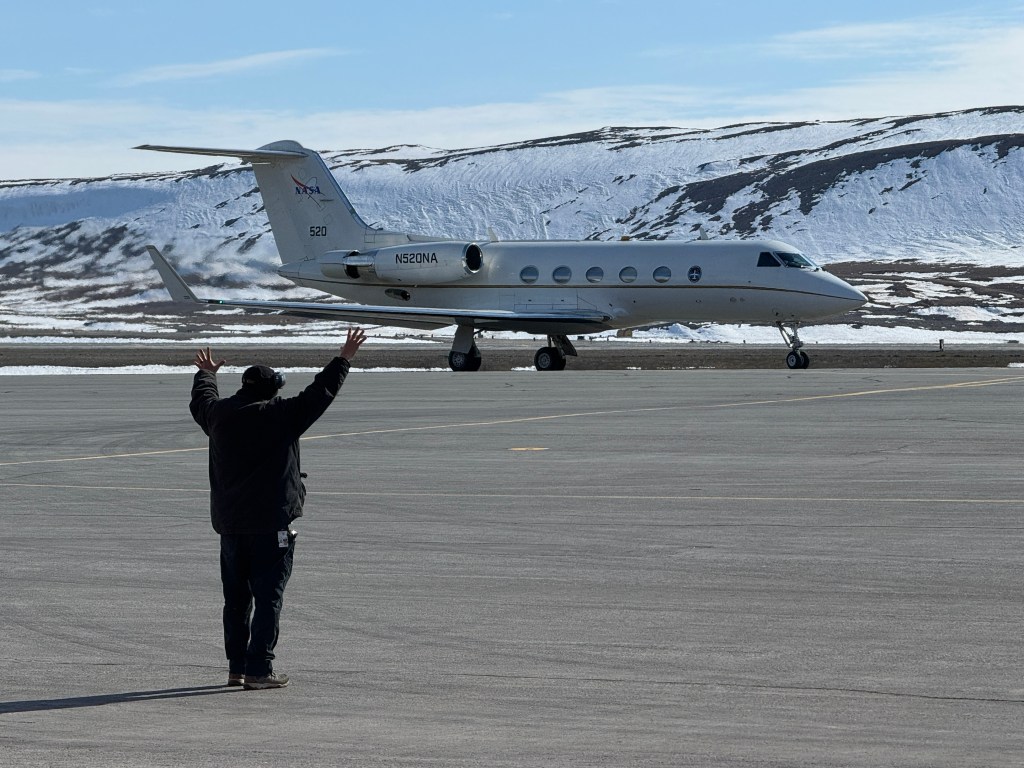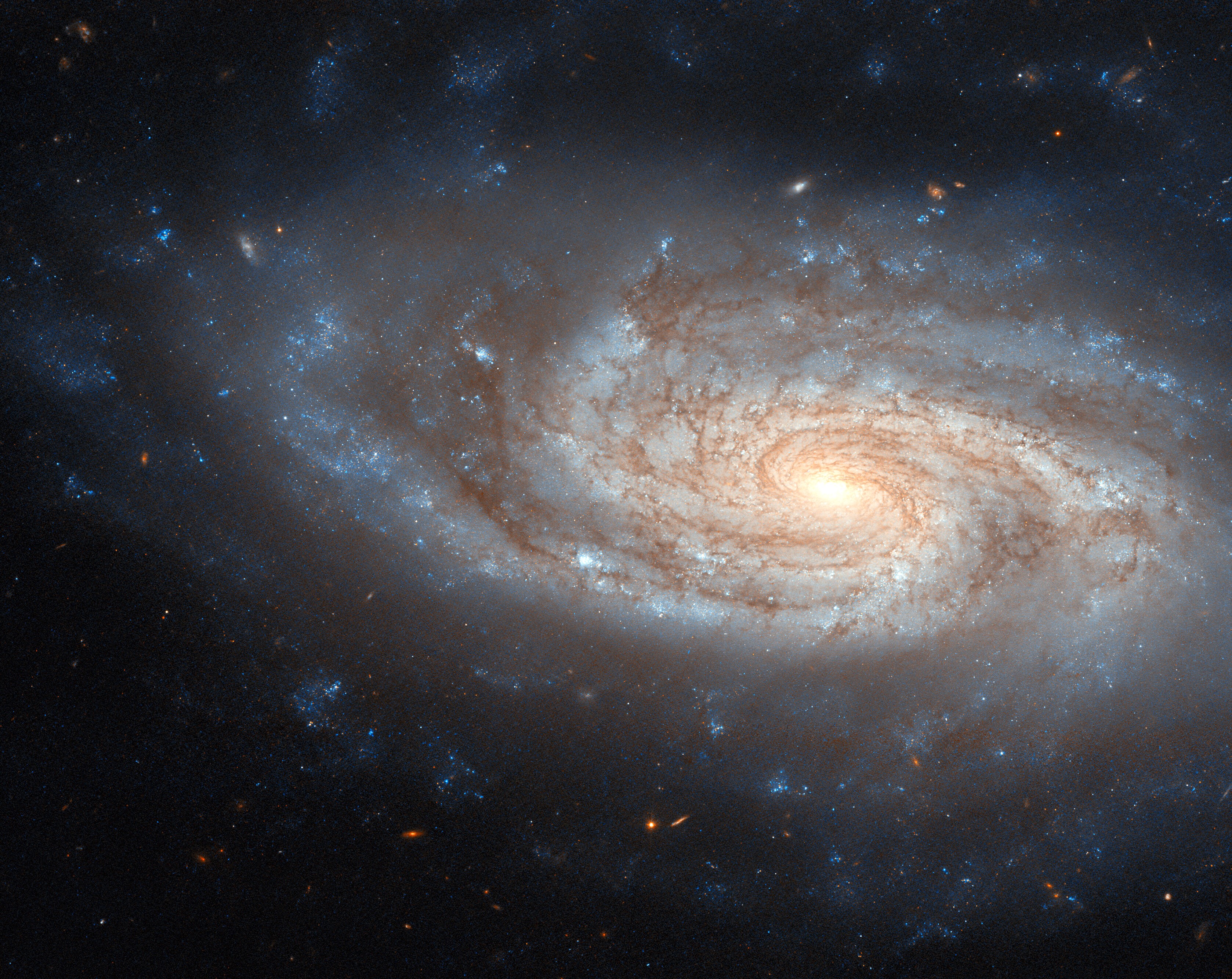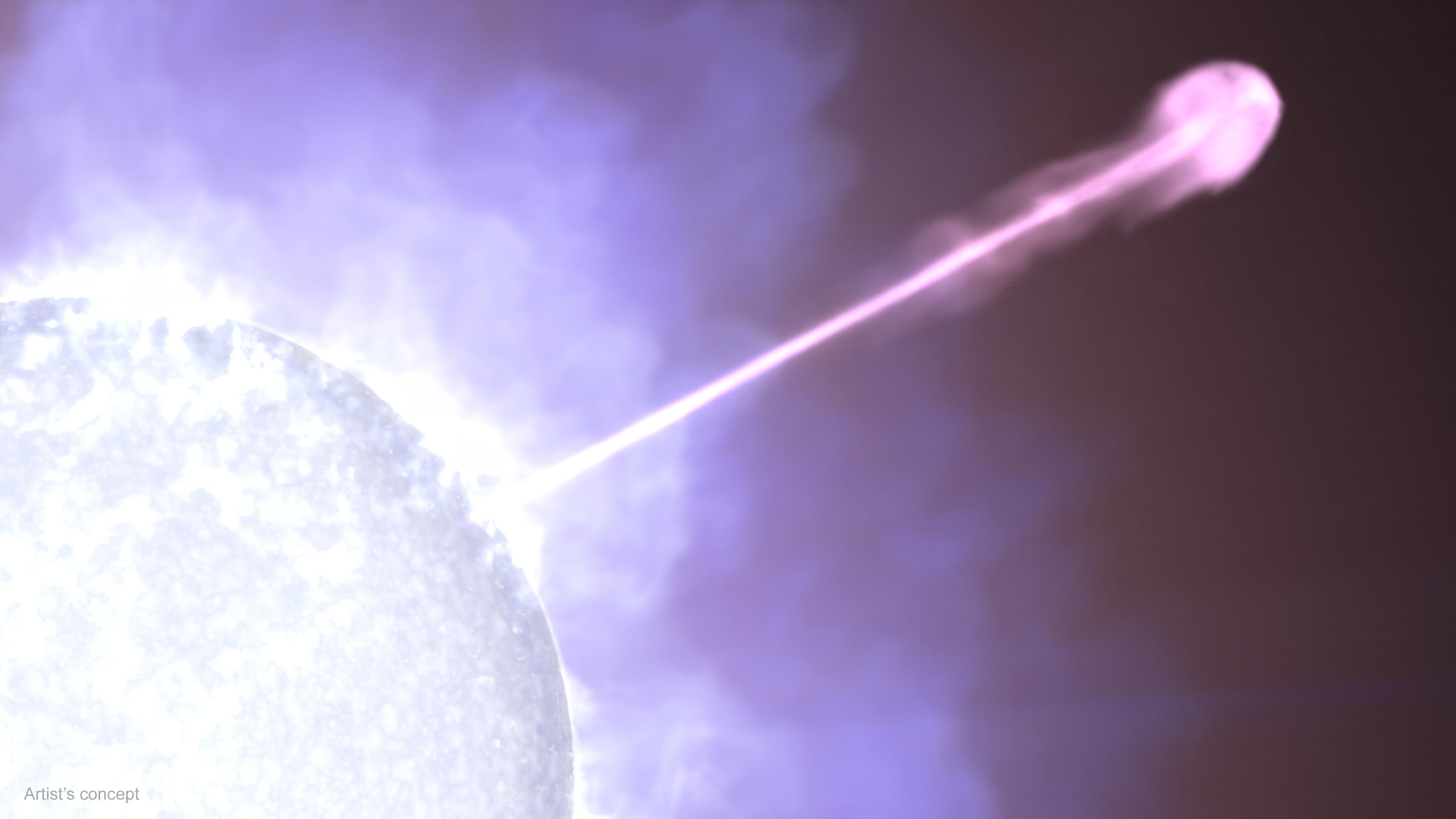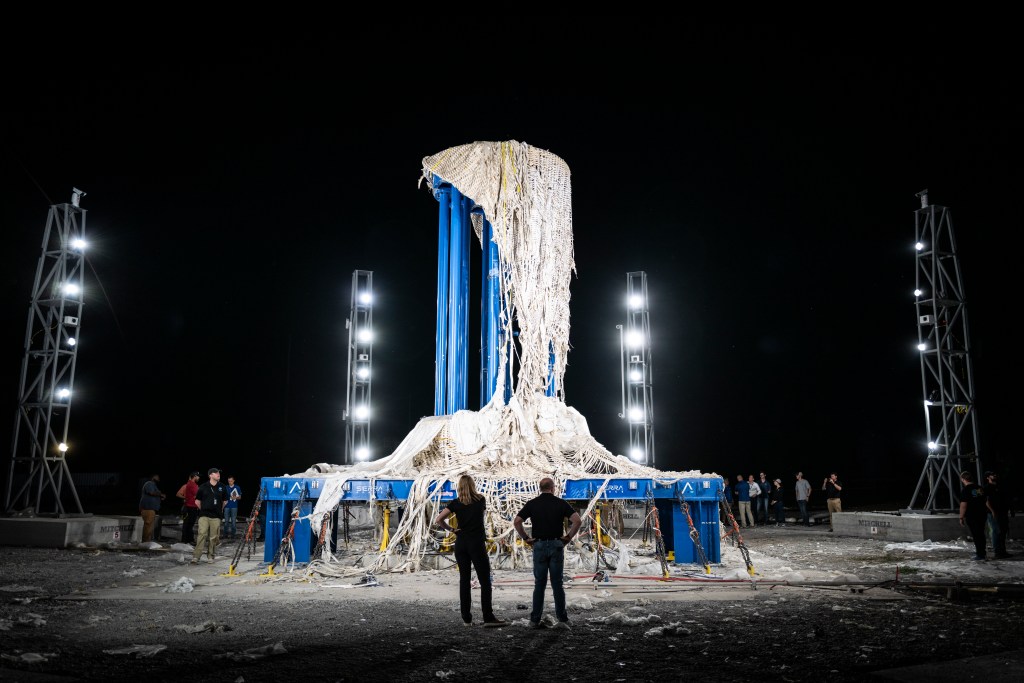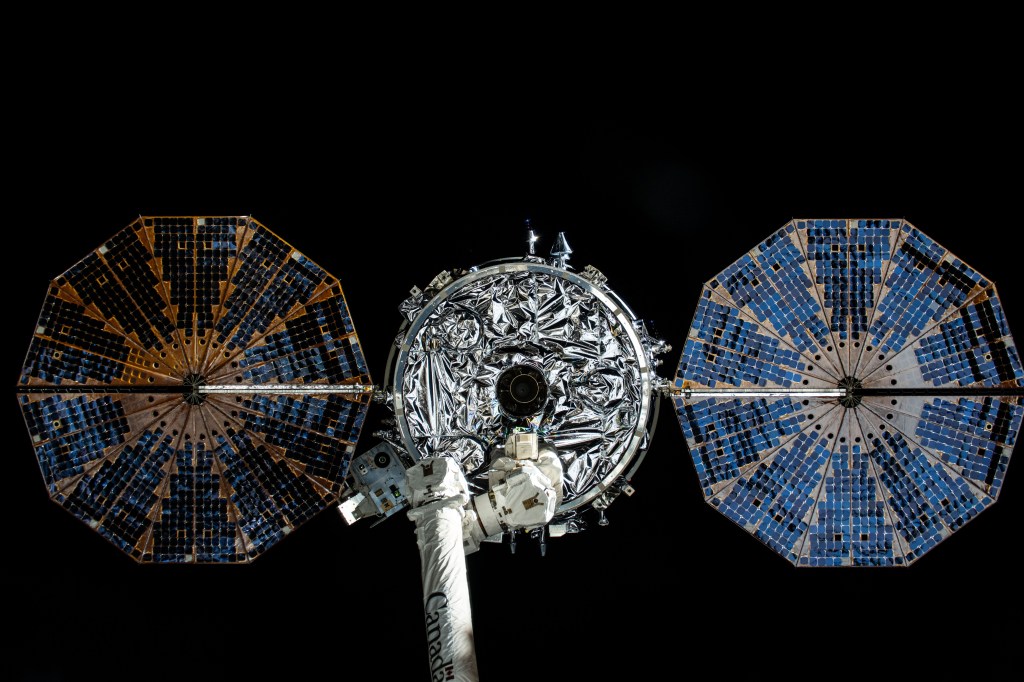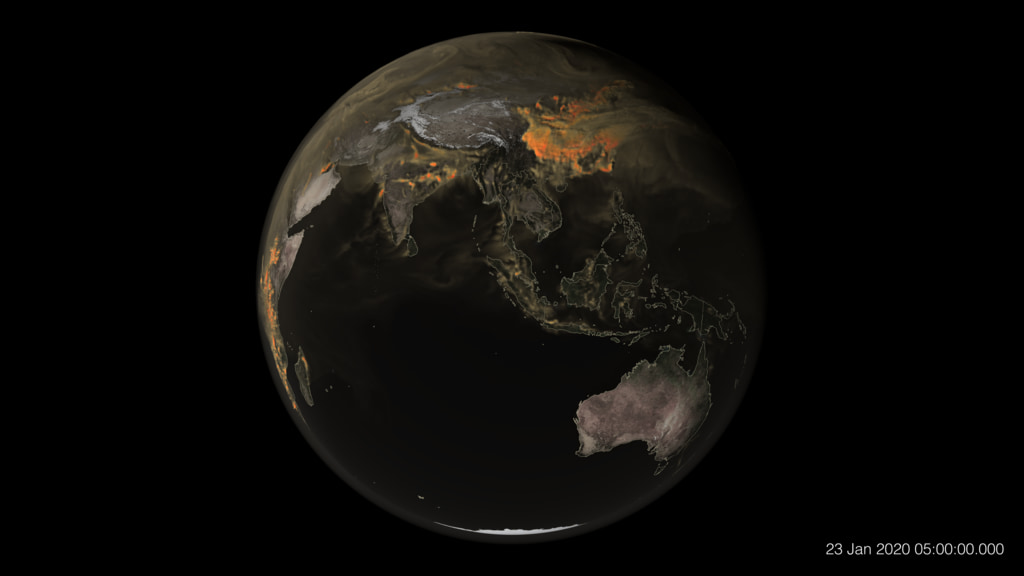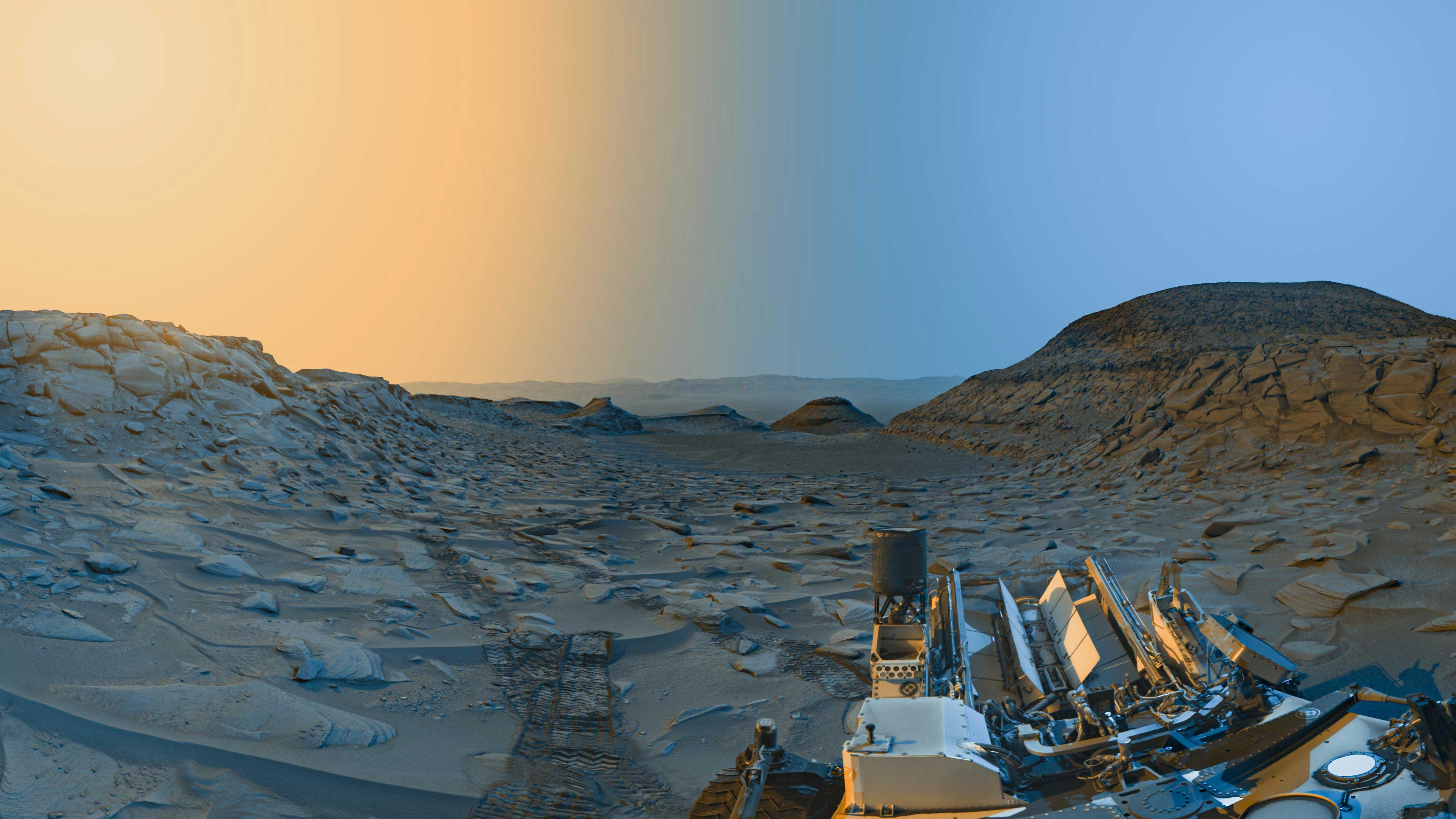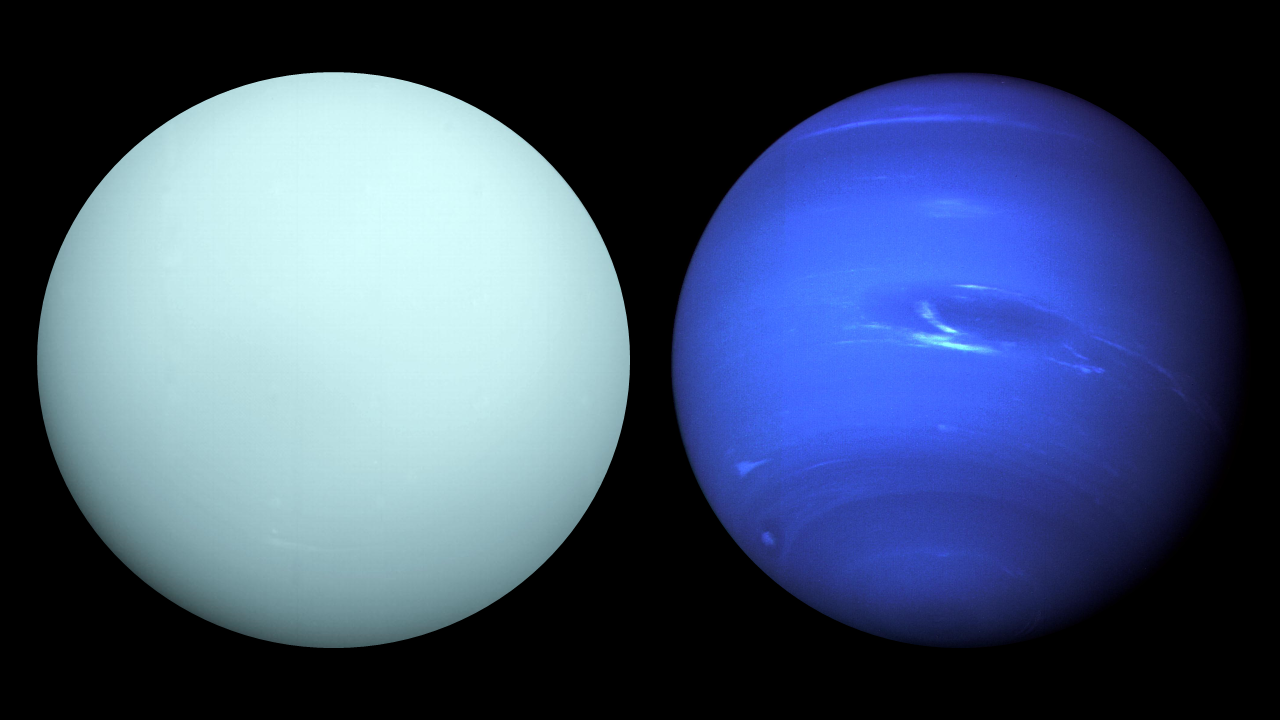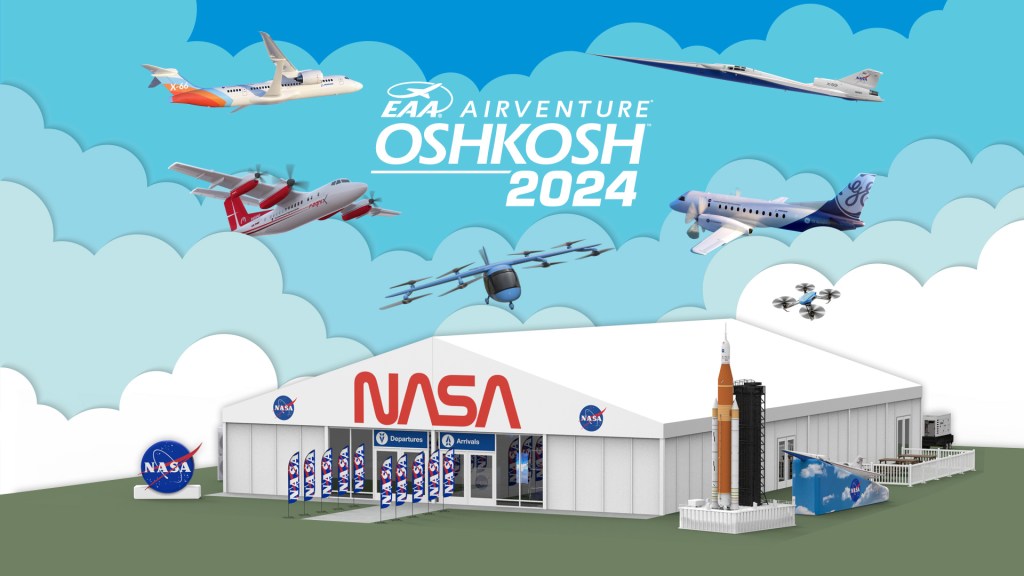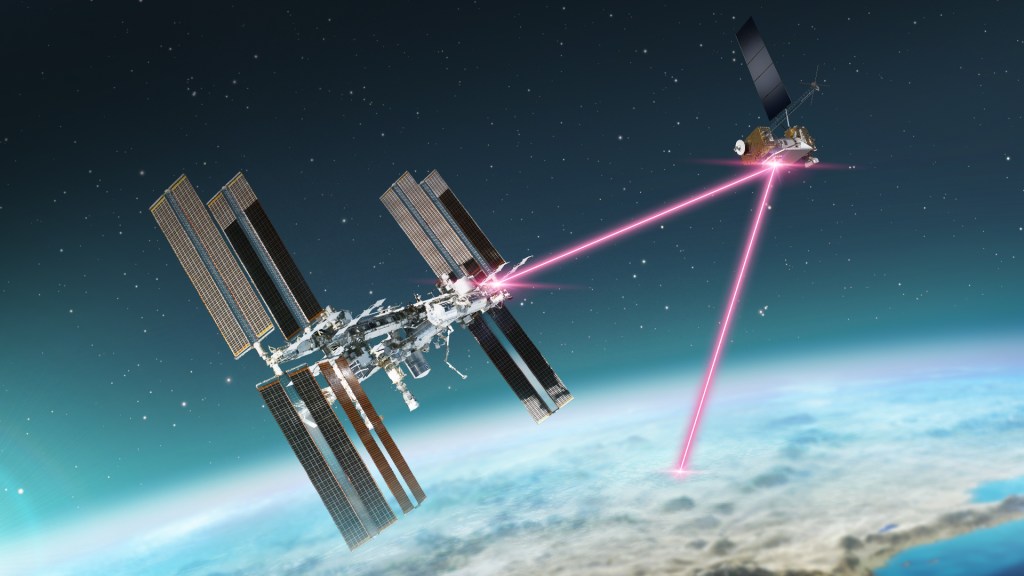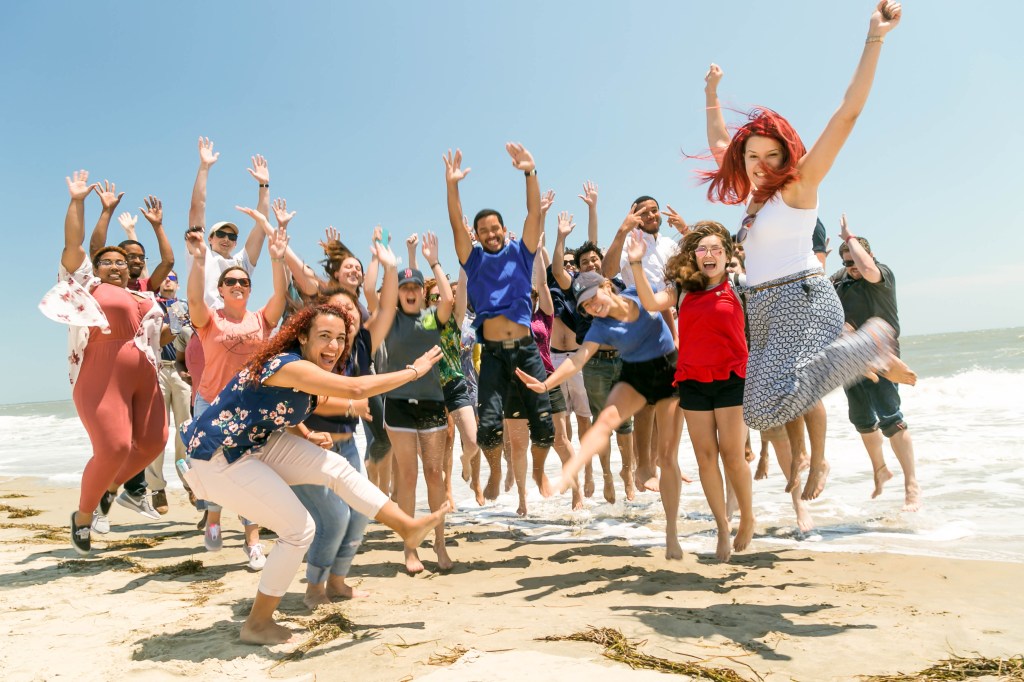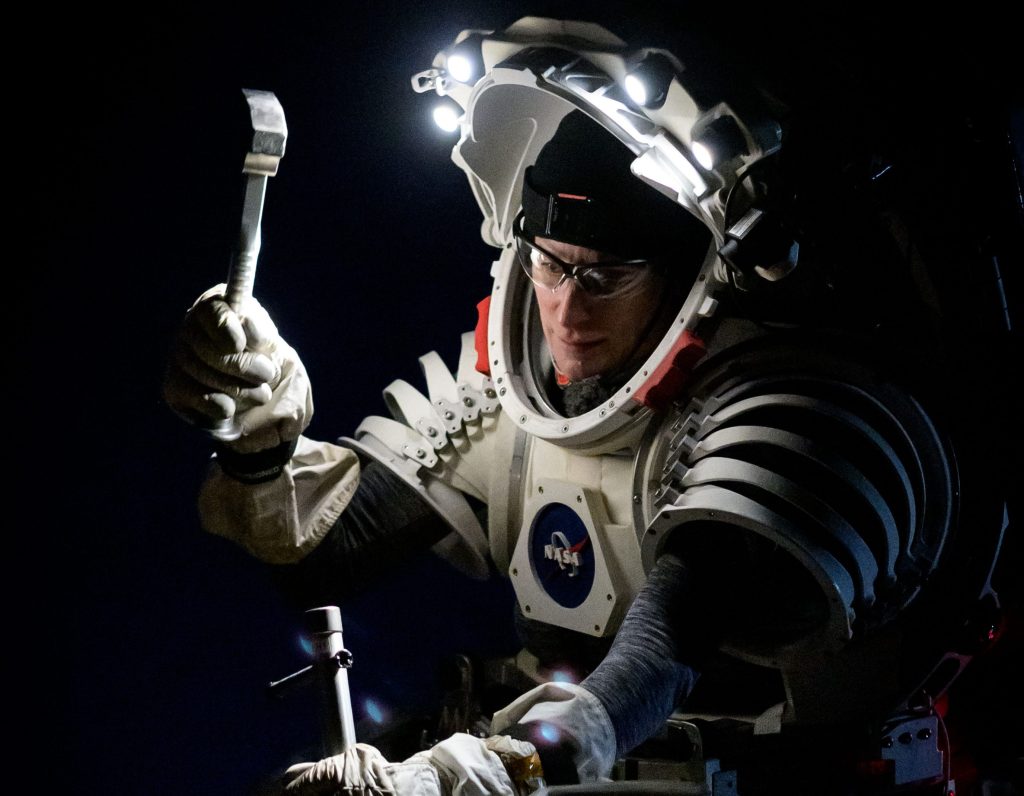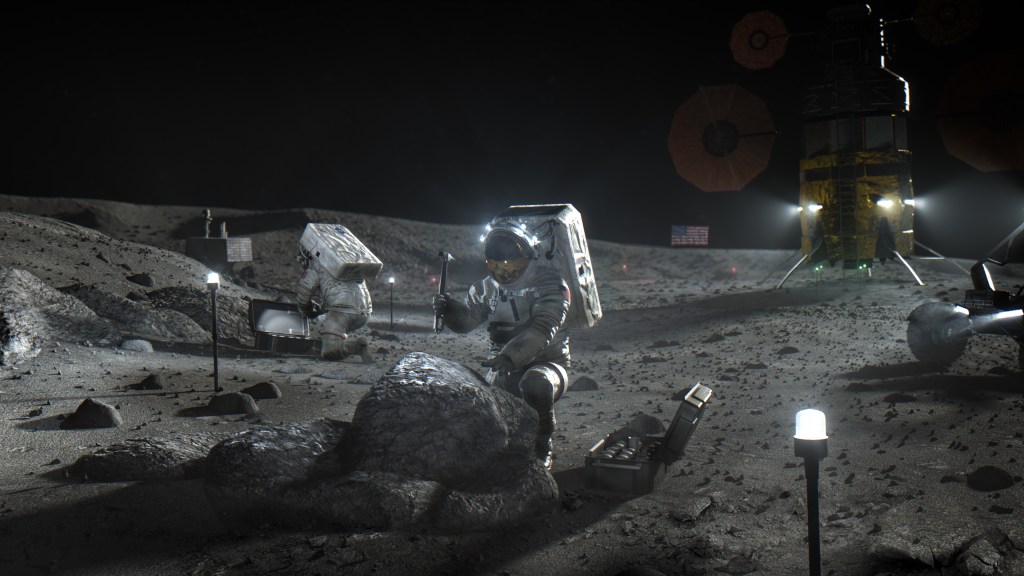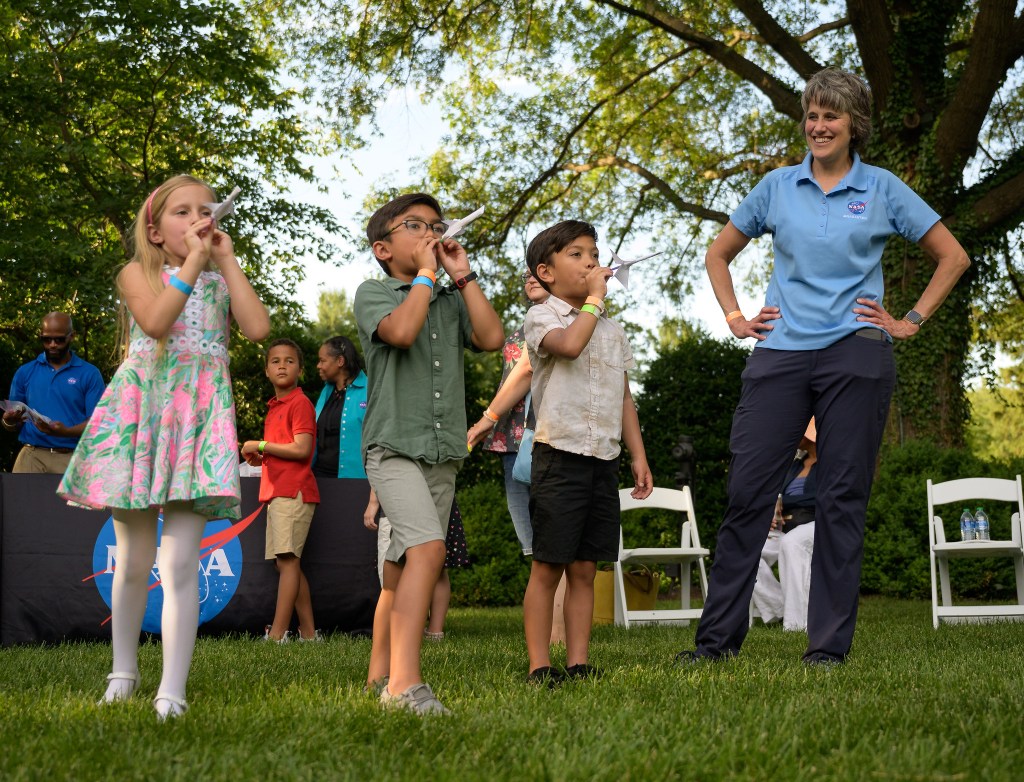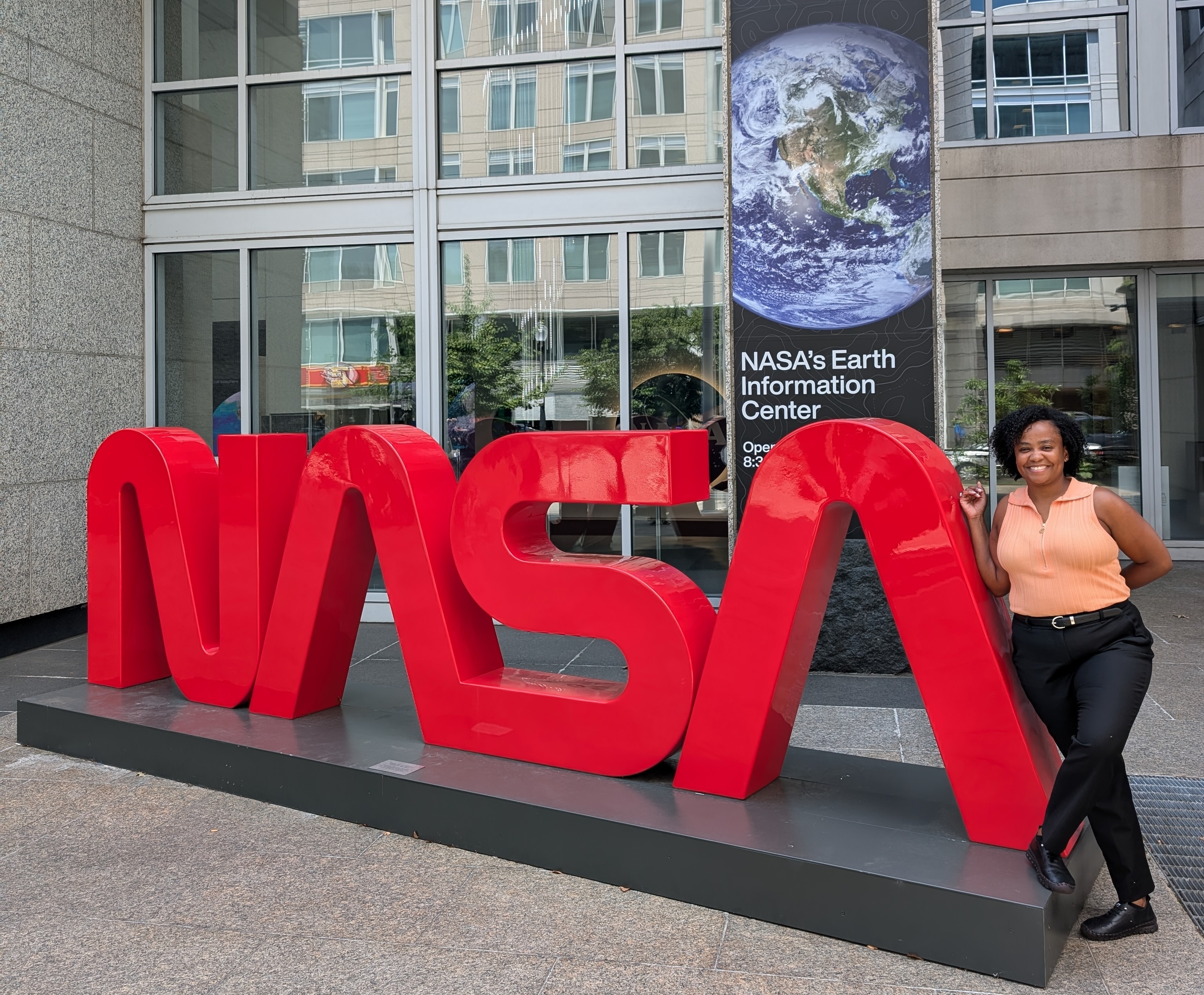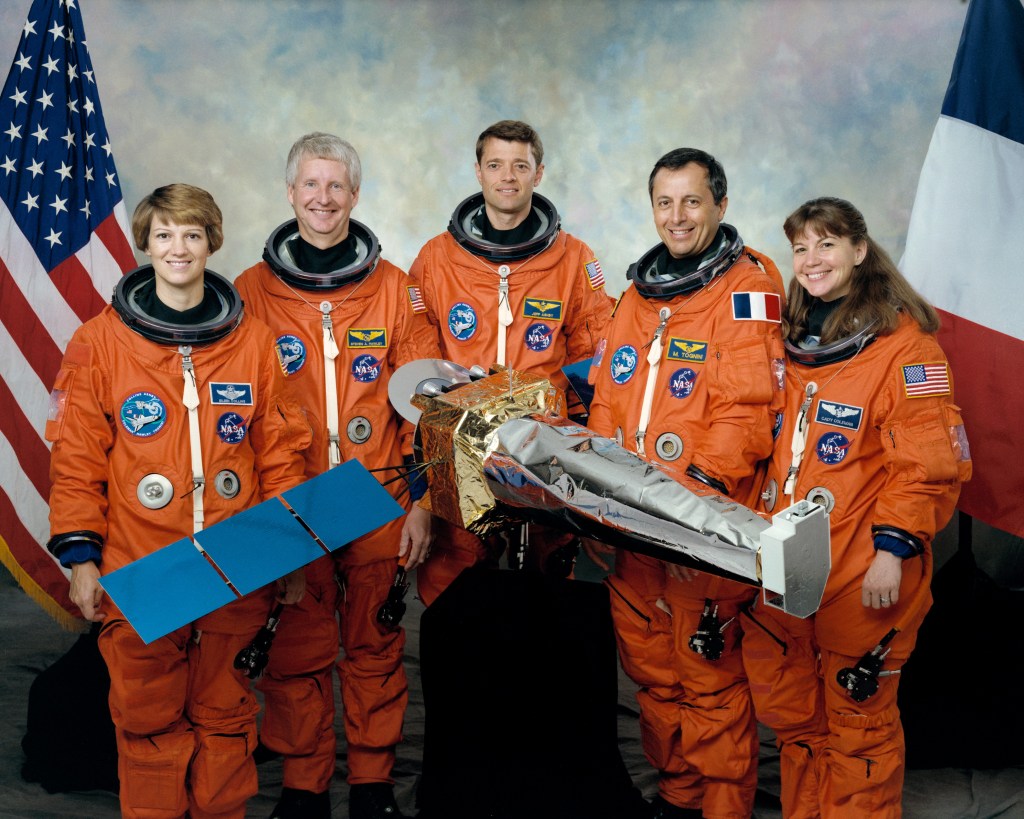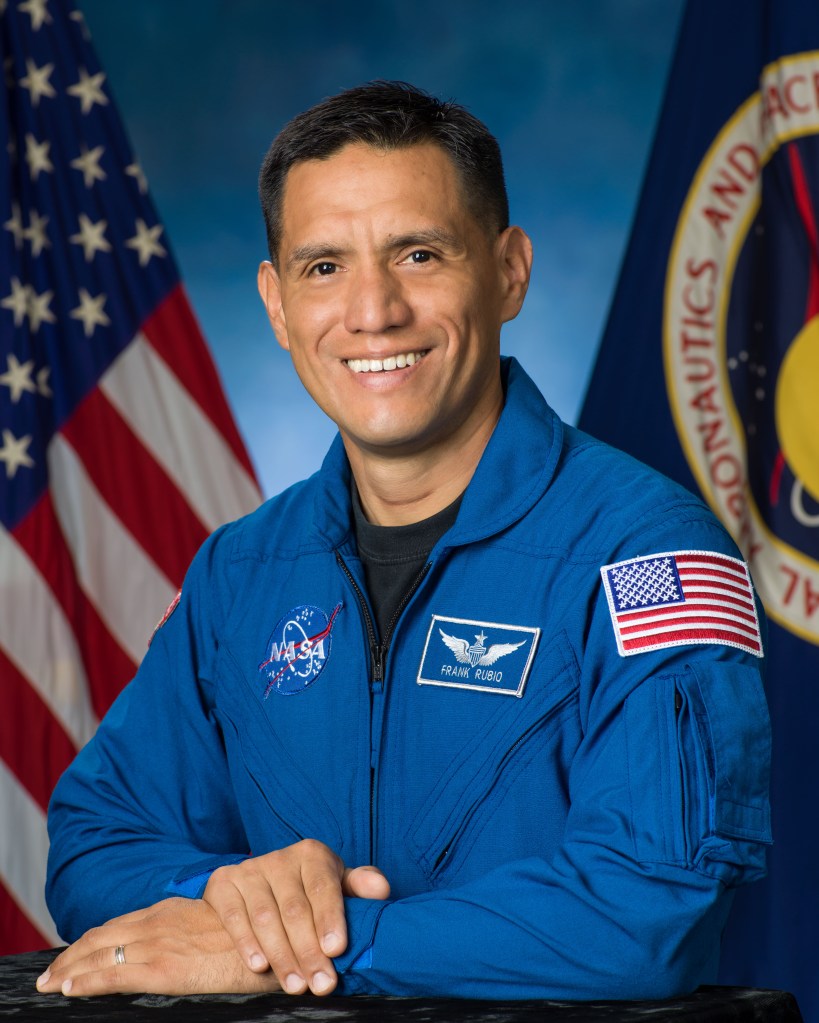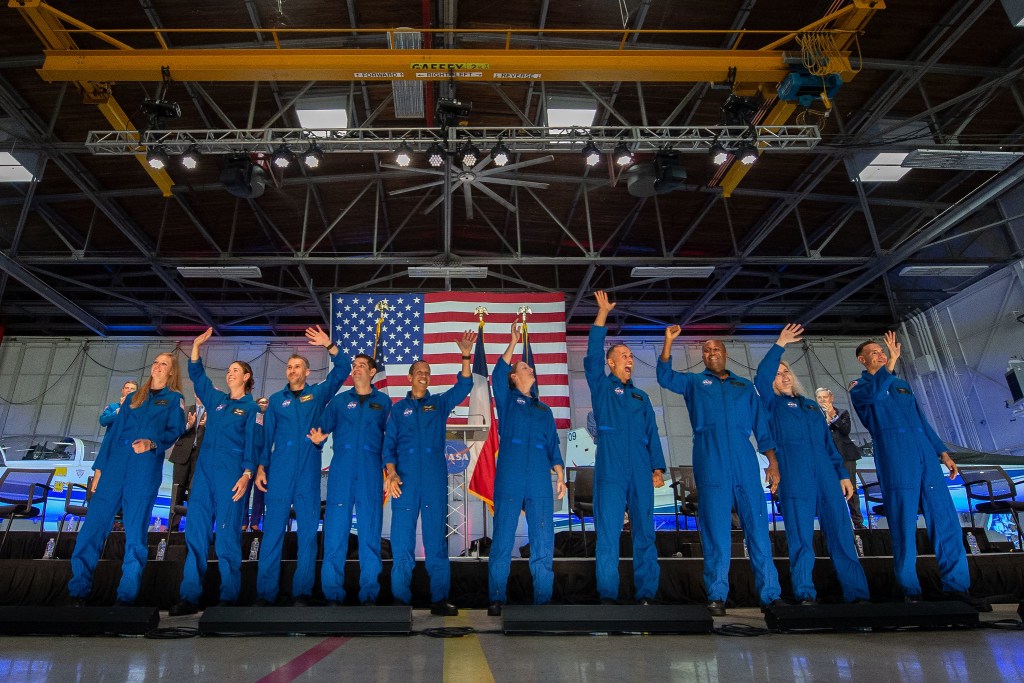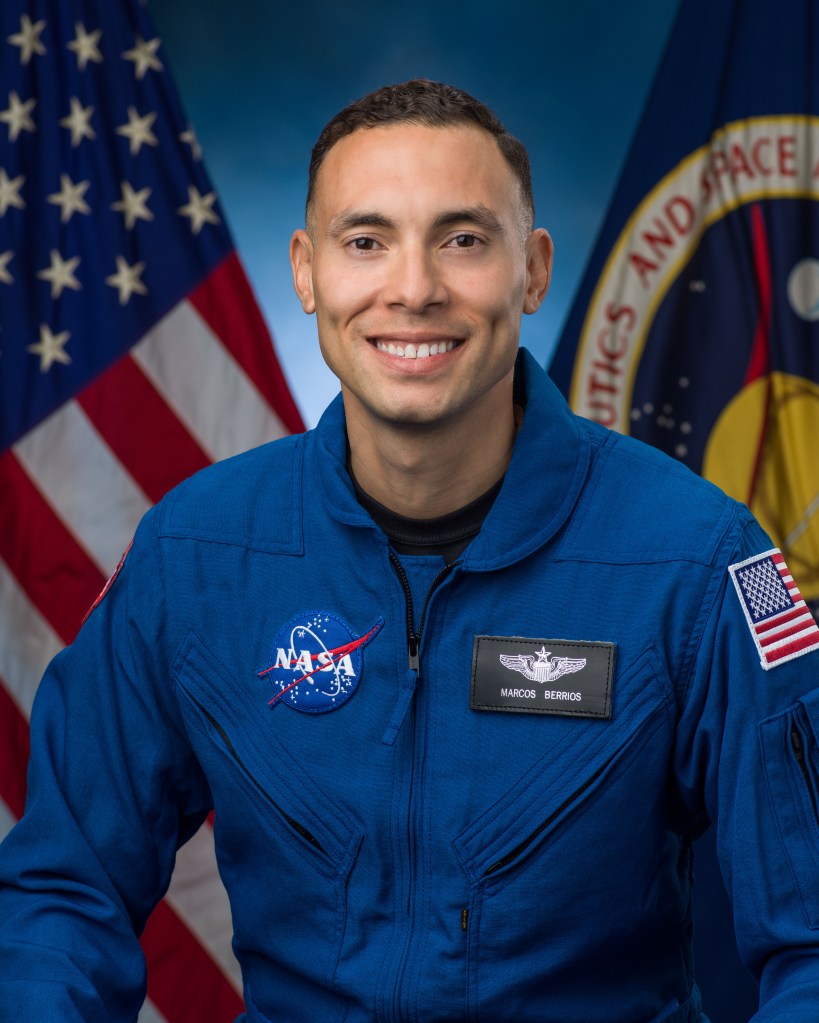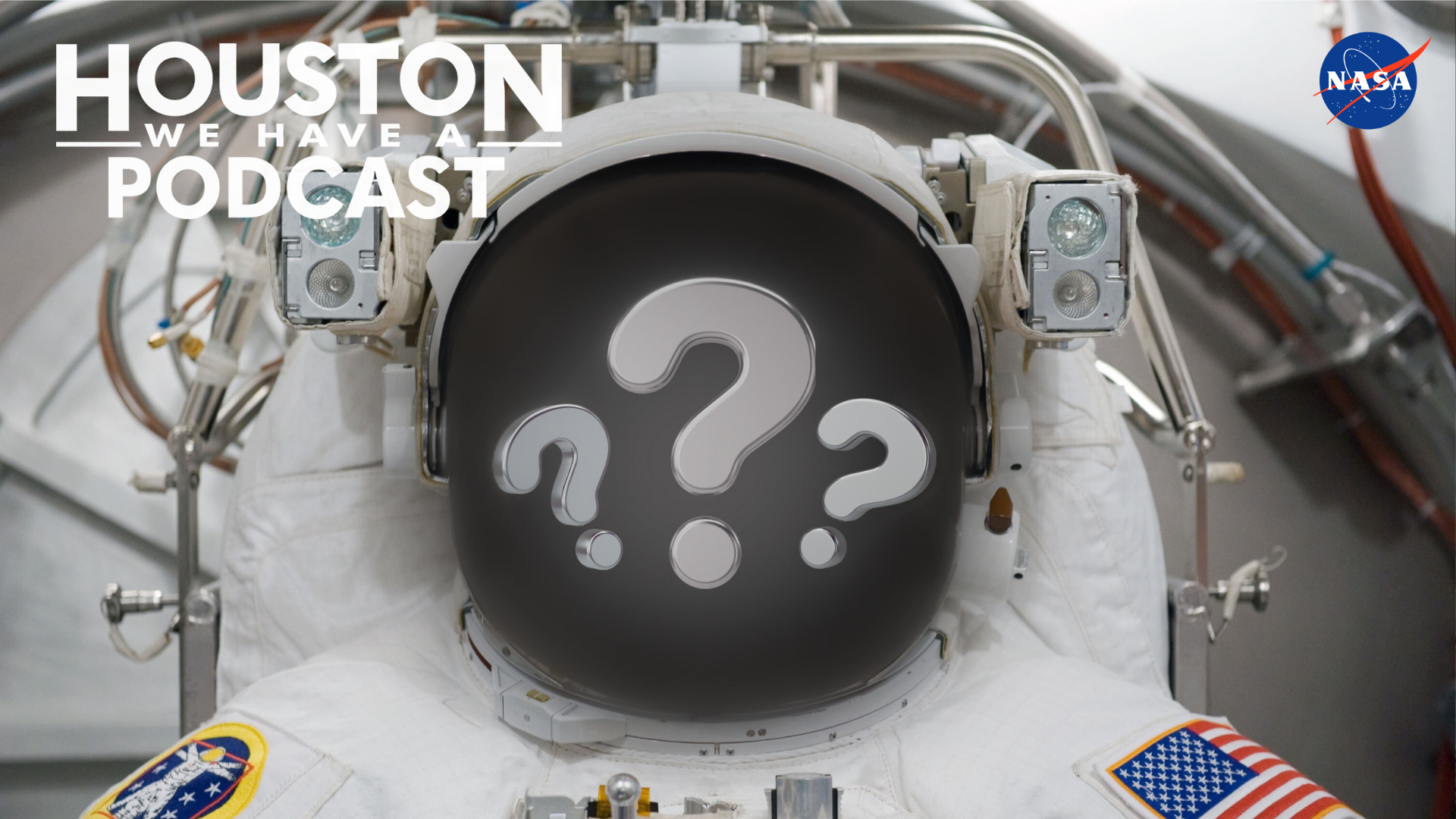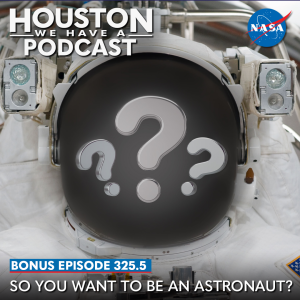
From Earth orbit to the Moon and Mars, explore the world of human spaceflight with NASA each week on the official podcast of the Johnson Space Center in Houston, Texas. Listen to in-depth conversations with the astronauts, scientists and engineers who make it possible.
On episode 325.5, NASA is looking to recruit the next class of astronauts, and applications are open! The manager of NASA astronaut selection discusses the selection process and how to apply to an out-of-this-world career. This episode was recorded February 9, 2024.
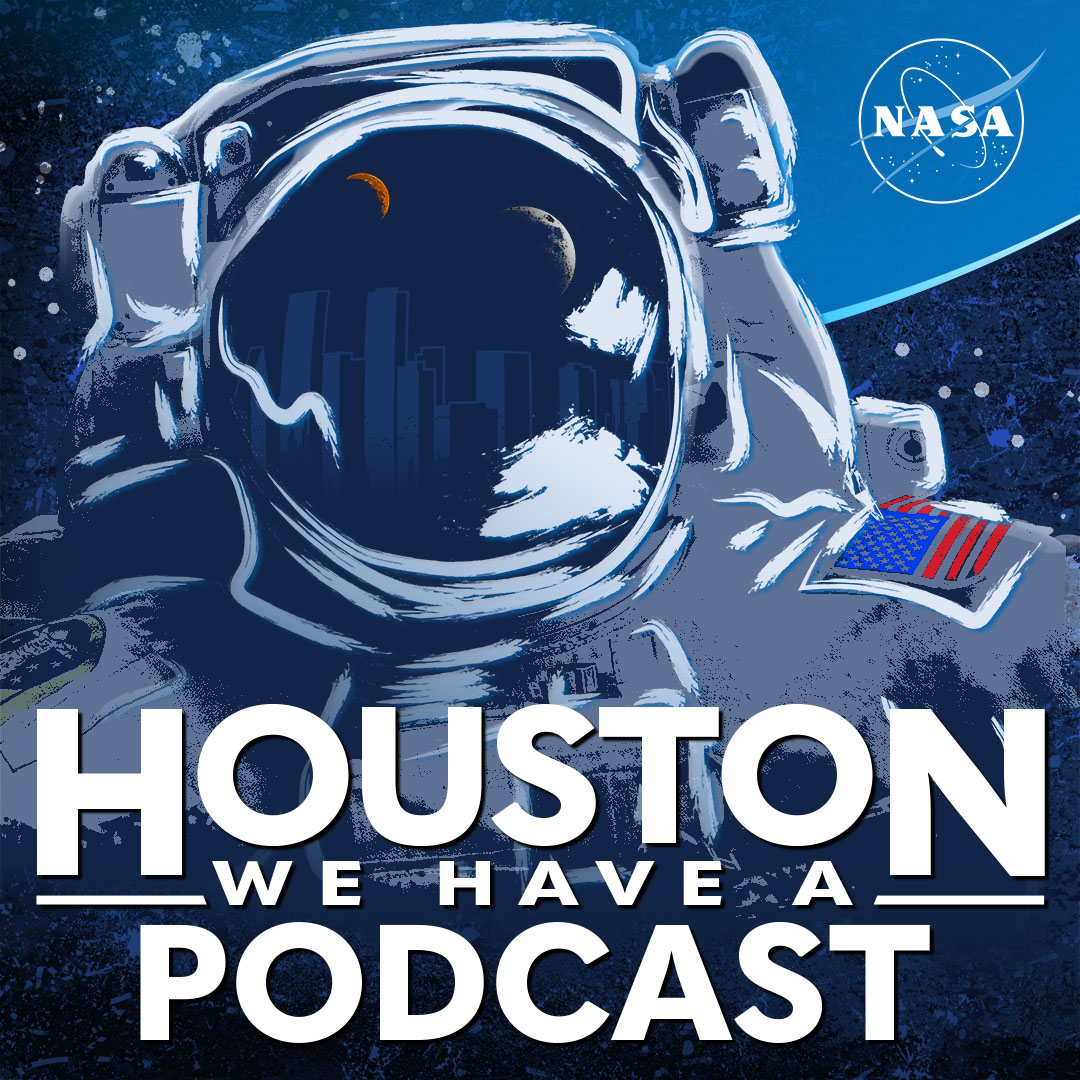
Transcript
Host (Dane Turner): Houston, we have a podcast! Welcome to the official podcast of the NASA Johnson Space Center, Episode 325.5, “So You Want to be an Astronaut?” I’m Dane Turner, and I’ll be your host for this bonus episode. On this podcast, we bring in the experts, scientists, engineers, and astronauts, all to let you know what’s going on in the world of human spaceflight and more. Have you ever wanted to be an astronaut? Well, now’s your chance! NASA is looking to recruit the next class of astronauts and applications are open. I recently sat down with the Manager of NASA Astronaut Selection, April Jordan, to find out more about the selection process, and what NASA is looking for in their next astronaut class. Enjoy!
[Music]
Host: April, thank you so much for coming on Houston We Have a Podcast.
April Jordan: Thank you for having me. It’s an exciting topic to talk about.
Host: We’re really excited to talk about it. We’re really excited to meet our new astronauts and have people apply to be the next class. So, looking back on the 2020 application process, that’s when the current class applied to be an astronaut. How many applications did we receive back then?
April Jordan: Yeah, this is a very popular application, as you can imagine. Last year, we had over 12,000 applications in for this role. To get to a selection of 10 new astronaut candidates is really difficult.
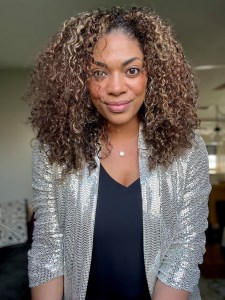
Host: That’s a lot of applications to go through. And that year we had some new requirements added. Applicants had to have a master’s degree. With this new selection, do we have new requirements coming out?
April Jordan: Yeah, we always take a look at the requirements that we’re assessing for this job. Just like NASA’s missions are changing and the needs that we have as an agency are changing, we want to make sure that we are accommodating our process to meet those needs. So there are a lot of subject matter experts that are involved in this. And post-selection, we take a look at, hey, what worked the last time? Also look at what are the missions ahead of us and what the needs are and assess are the qualifications different. And that’s really benefited us to make sure we’re adapting what we’re looking for from some of the shorter duration missions that we used to do, going to some longer duration missions that we’re currently in and that are ahead of us.
So for the master’s degree, we did change that last cycle. We took a look at what we were selecting, who we were selecting and what their educational backgrounds were. And for the most part, that is what we were selecting as folks with an advanced level of education, which really benefits them coming into the office. So this year, we’re also making a few changes and looking at what we need for the office. And so all of those will be listed on our website, nasa.gov/astronauts. And I just encourage folks when they are applying to read the application in great detail, there’s a lot of information there. I know it can be a little intimidating, but it’s really important to understand what the qualifications are generally. And then for each specific discipline group that we’re looking for.
Host: Right. Because last time around we saw that there were different requirements for pilots.
April Jordan: Yes. Because that experience is a little bit different for those folks. We’re looking for some flight hour qualifications around that. So, specifically for pilots, they do have to have a minimum of 1,000 flight hours with 850 of those being in a high-performance jet aircraft. So, again, just looking at each discipline, what they’re going to bring to the office, what kind of roles they may have. And so for some of those discipline groups, the specific requirements are a little bit different.
Host: Great. What kinds of people are you looking for kind of generally for this application?
April Jordan: Well, this is a difficult job. It’s an exciting job and a difficult job. And, you know, what I’m sharing is what I’ve learned through selection processes, with astronauts themselves. They are part of the subject matter expert group that is a part of selection. So we’re not just going out selecting astronauts on our own. We have a lot of folks from that office that have experience flying that really help us determine what’s going to make a great astronaut. So we’re definitely looking for folks with leadership skills, but teaming being able to be a great team player and a great team partner is a huge part of this job. I don’t think there’s anything that they’re doing that they do individually. You know, there are teams on the ground that are helping them. There’s a lot of training. They have teams that are helping them there. So being a really good team player, being able to kind of vacillate between those roles, knowing when you have to be a leader, when you can be a follower and need to be a follower is really important. And folks need to be adaptable. I mean, this is a role that they’re going into where sometimes we don’t know exactly what’s going to happen. Space is an unpredictable environment. Even in the training environments, you know, there’s some things that are unpredictable there as well. So folks that are able to adapt quickly and make really sound decisions are also really important.
I’d encourage folks, definitely the technical foundation that you have and the technical experience that you have is really important. But also thinking about what kinds of things do you do outside of your professional work that might be applicable to this job as well. So our assessment process is a holistic one. So we’re looking at a lot of different things because this is kind of like a life-changing position that people come into. And it’s not an eight-to-five job all the time. And so kind of looking at what you bring in as a whole person is really important as well.
Bringing in a class that is diverse in every way that you can think of is really what helps us be successful for the NASA missions that they take on. So being able to work with people that come from a variety of backgrounds is also really important. You know, this group of people tends to be the face of NASA, and we want people to look at the group and see themselves reflected back in that. So it’s really important that we look at what are all the different pieces that people are bringing into the job to create a really successful team that’s going to come together and do great things for our agency.
Host: That’s really great. So once people apply here, about how long does the process take?
April Jordan: The process is a long one. It takes us about two years from start to finish, which is a really long time. And I know for people that apply, it’s a long waiting game to kind of hear what’s happening next. But there are just a lot of different gates that we have to go through. As you imagine, if you get 12,000 applications trying to get down to a much smaller level, you want to be really intentional about how you move to the next phases. So there’s some rating panels that are involved in that look at resumes, do reference checks, and then there’s a period of in-person interviews where we bring people here to the Johnson Space Center and have a lot of fun with a lot of different activities for them. But it’s a pretty long process, very thorough. There’s a lot of information that we collect to really get to know the applicants that we’re considering, and we just appreciate people’s patience through it knowing that it’s a pretty long waiting game.
Host: How many people does it take to go through those 12,000 applications?
April Jordan: Yeah, that’s a great question. On our astronaut selection board, we tend to have about 12 to 15 people. Those are folks that kind of help determine highly qualified candidates. They conduct the interviews and they’re mostly current astronauts that make that up. But outside of that, a lot of the medical staff that works here at the Johnson Space Center is involved, just in helping with some of those in-person assessments that we do. I don’t have a good number actually for how many folks that is, but there are a lot of different pieces of NASA that play into that. There’s a training component that folks are kind of helping us with some of those individual and team exercises. So there are all different pieces of the Johnson Space Center that we’ve tapped into that would work with an astronaut if they were selected to really help us evaluate their capabilities.
Host: Great. And I’ve got one more question for you here. If one of our listeners wants to apply to be an astronaut here, do you have any advice on making sure they meet the criteria and how to make their application stand out?
April Jordan: Yeah. Well, the first thing I tell people is that if they think they’re interested in the job, they have zero chance of knowing if they would get it if they don’t apply. So apply, if you’re interested, throw your name in the hat for sure. Second thing is really read the application well. If there’s a piece of the basic qualifications that’s not included in the package, then that gets you kind of put out right at the very beginning. So be thorough in that. I would just tell them to consider all the pieces of their life that make them who they are and applying and consider their professional experience. But to your point of what you’ve heard from the current ASCANs, consider their hobbies. You know, what are the things that they like to do outside of their work that would be relatable back to this position. So really think holistically about themselves when they’re telling us who they are through their application.
Host: Great. I’m really excited to get my resume together.
[Laughs]
April Jordan, thank you so much for coming on Houston We Have a Podcast.
April Jordan: Thank you for having me.
[Music]
Host: Thanks for sticking around. We hope you enjoyed hearing about astronaut selection, and maybe are considering applying yourself! For more information about applying to be an astronaut, check out nasa.gov/astronauts, and if you want more NASA podcasts, you can find us online at nasa.gov/podcasts. You can also find Johnson Space Center on social media on Facebook, X, and Instagram. To contact us, use #ASkNASA on your favorite platform and make sure to mention it’s for Houston We Have a Podcast. This episode was recorded February 9, 2024. Thanks to the Houston We Have a Podcast team, Gary Jordan, Will Flato, Abby Graf, Jaden Jennings, and Dominique Crespo. Thanks to Chelsey Ballarte for connecting us with the astronaut selection team. And of course, thanks again to April Jordan for coming on to speak with us. Give us a rating and feedback on whatever platform you’re listening to us on and tell us what you think of our podcast. We’ll be back later this week.


